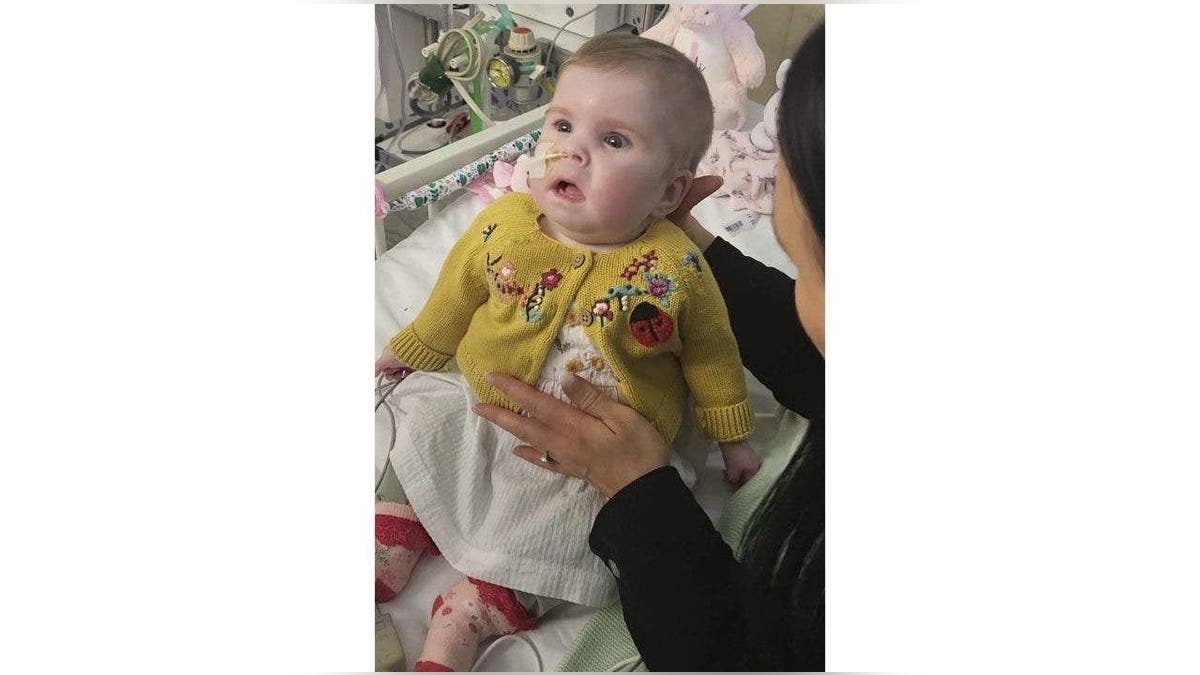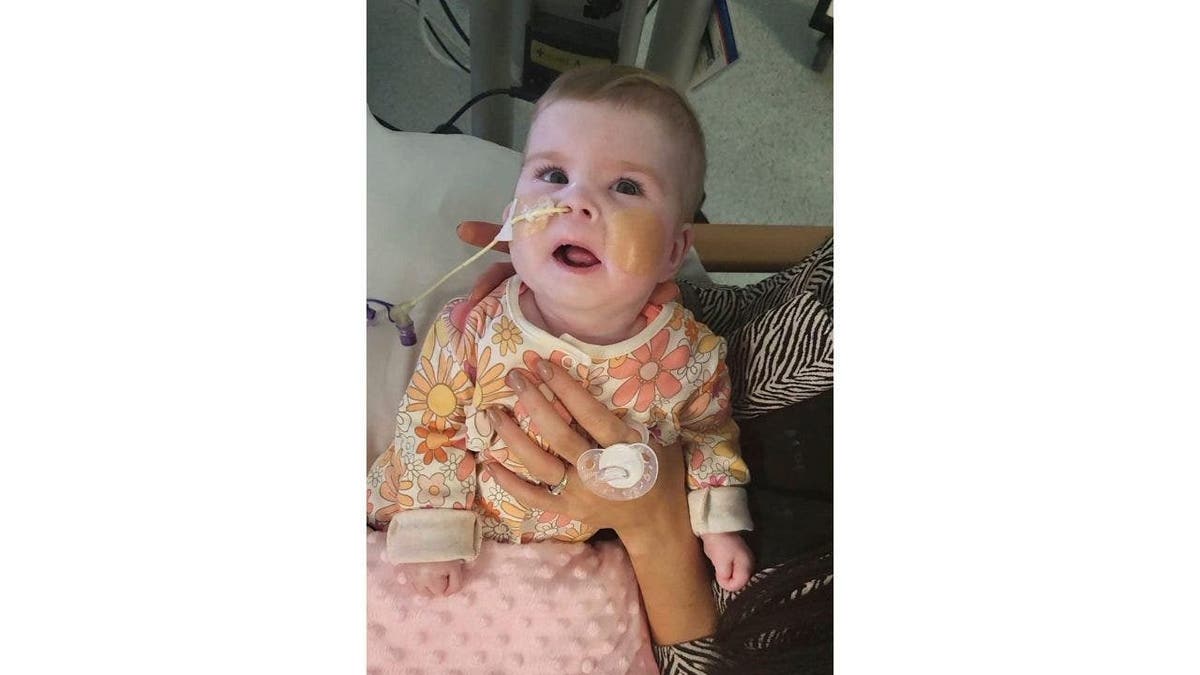Fox News Flash top headlines for November 9
Fox News Flash top headlines are here. Check out what's clicking on Foxnews.com.
An 8-month-old infant in the United Kingdom has been given more time to live after an appeal suspended a judge's mandate that she be removed from life support.
Justice Robert Peel ruled Wednesday that Indi Gregory was to be removed from her life-supporting ventilator on Thursday against the parents' wishes.
Now, the Gregory family has successfully launched an appeal to that mandate, hoping to negotiate the right to seek continued treatment overseas.
Indi Gregory was born in February of this year and suffers from a degenerative mitochondrial disease that will very likely take her life.
UK JUDGE RULES TO WITHDRAW LIFE SUPPORT FROM TERMINALLY ILL BABY DESPITE TREATMENT EFFORTS

This undated family handout photo shows 6-month-old Indi Gregory. Italy's government on Monday granted Italian citizenship to the now 8-month-old terminally ill British girl after a court in Britain upheld rulings authorizing the withdrawal of life-supporting invasive treatment. (Family Handout/PA via AP)
In a bid to escape the mandate to remove life support, the Gregorys made emergency arrangements with leadership at the Vatican for her to continue treatment at Bambino Gesù, a Catholic pediatric hospital in Rome.
The parents also secured Italian citizenship for Indi directly from the Italian prime minister.
NETHERLANDS EUTHANIZING AUTISTIC AND INTELLECTUALLY HANDICAPPED PEOPLE, RESEARCHER FINDS
"They say there isn’t much hope for little Indi, but until the very end, I’ll do what I can to defend her life, and to defend the right of her mamma and papa to do all that they can for her," Italian Prime Minister Giorgia Meloni wrote on social media this week.

Baby Indi Gregory's situation is the latest in a series of cases in Britain in which courts have overruled parents concerning the treatment of terminally ill children. The Vatican's pediatric hospital, Bambino Gesu, in Rome has offered to care for Indi Gregory. (Family Handout/PA via AP)
The Court of Appeals will hear the Gregorys' case on Nov. 10.
Doctors at Queen's Medical Center in Nottingham will not be allowed to remove the infant from life support until the conclusion of the appeals process.
CLICK HERE TO GET THE FOX NEWS APP
The Italian government has pressed the U.K. courts heavily to turn the child over to their custody.
"Earlier today, with the clock ticking, Indi's Italian guardian made an urgent application to the U.K. High Court calling on Mr Justice Robert Peel to cede jurisdiction of the case to him under Article 9§2 of the 1996 Hague Convention," religious legal group Christian Concern explained Friday.
Christian Concern hopes that the increasingly international nature of the case will force the courts to back down, claiming that "such a development has never happened before in an end-of-life case involving a child in the U.K."

